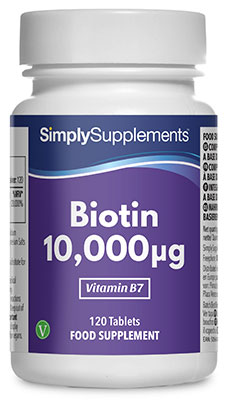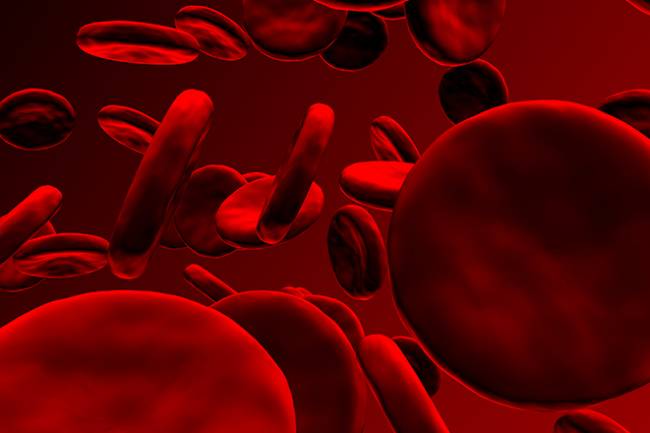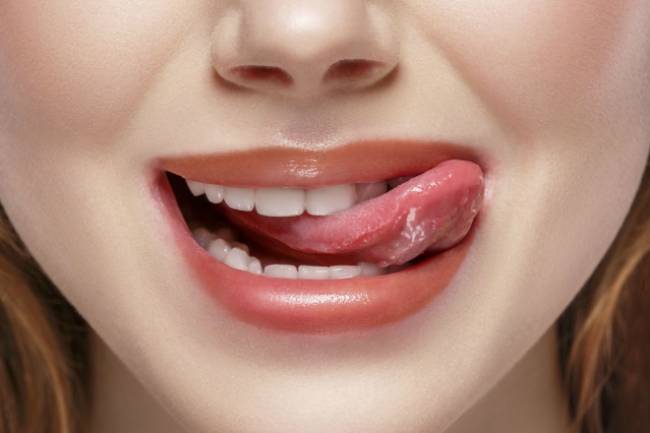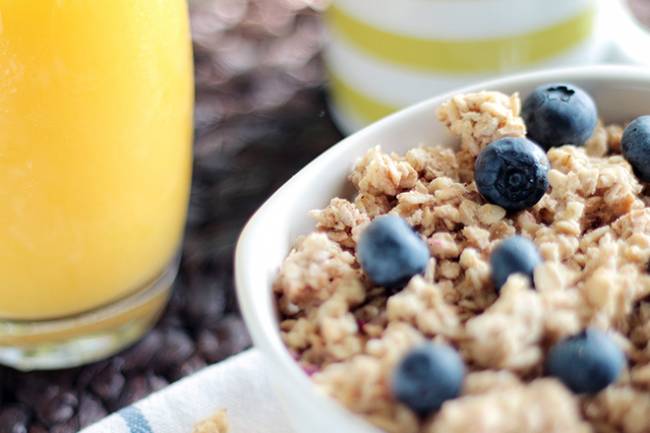Biotin: Functions and Benefits

Biotin is one of a group of water soluble vitamins known as the vitamin B complex. Many of the B vitamins share similar functions in the body, and when the vitamin B complex was first discovered it was mistakenly thought to be a single nutrient.
Later on, when it was realized that the complex was actually composed of a variety of individual compounds, around twenty nutrients were identified as having vitamin B activity.
However it now understood that there are only eight members of the B complex that are true vitamins, meaning that they are essential components of the diet.
The eight B vitamins are:
- Vitamin B1 – Thiamine
- Vitamin B2 – Riboflavin
- Vitamin B3 –Nicotinic Acid/Nicotinamide
- Vitamin B5 – Pantothenic Acid
- Vitamin B6 – Pyridoxine
- Vitamin B7 – Biotin
- Vitamin B9 – Folic Acid
- Vitamin B12 – Cobalamin.
It is difficult to attribute the discovery of biotin to any single scientist, as it was identified and assigned different names several times by a variety of researchers.
During the early years of the twentieth century different people discovered a growth factor for yeast, and labelled it bios, from the Greek word for life. The same substance was then isolated in the 1940s, and was given the name vitamin H, relating to the German word for skin: Haut.
At the same time, another team of scientists also isolated the same compound, and assigned it the title of coenzyme R.
Subsequently it was realised that all these discoveries referred to a single chemical, and finally, forty years after its initial discovery, biotin was unequivocally established as a vitamin in the 1960s.
Overview of Functions
Like all B vitamins, biotin has an important role in converting food into energy. Biotin functions as a cofactor in the intermediary metabolism of macronutrients, meaning it is needed by the human body to process proteins, carbohydrates and fats.
Biotin is also involved in cell production and gene expression, and contributes to the regulation of immunological and inflammatory functions in the body. Biotin is also essential for proper embryonic growth and development.
Deficiency
Like most mammals, humans do not have the capacity to the synthesise biotin at the cellular level, and so require an exogenous source of the vitamin. The human intestine is exposed to two sources of biotin:
- Biotin from the diet
- Biotin produced by normal microflora in the large intestine.
Because it is a water-soluble vitamin, the body does not have the capacity to store biotin, and so a regular supply is required to avoid a deficiency of the vitamin. A number of factors exist that can increase a person's risk of biotin deficiency:
- Prolonged consumption of egg white
- Total parenteral nutrition without added biotin
- Smoking
- Pregnancy
- Certain liver diseases.
Considering that biotin is needed for normal cellular function, growth and development, it is not surprising that a deficiency of the vitamin can result in a range of clinical irregularities.
Most signs of overt biotin deficiency fall into two categories, dermatological abnormalities and neurological disorders:
Dermatological Abnormalities
- Hair loss
- Scaly red rash around the eyes, nose, mouth and genitals
- Brittle nails
- Cracking in the corners of the mouth.
Neurological Disorders
- Depression
- Lethargy
- Fatigue
- Hallucinations
- Numbness and tinging.
In addition to exhibiting the above features, individuals who have functional biotin deficiency, as a result of being born with an inability to properly metabolise the vitamin, may experience seizures and impaired immune function.
Biotin Requirements
In 2014, in response to a request from the European Commission, the European Food safety Authority (EFSA) Panel on Dietetic Products, Nutrition and Allergies (NDA) attempted to derive specific Dietary Reference Values DRVs for biotin.
Previously, biotin requirements were described by an Acceptable Range of Intakes (15 – 100ug per day for adults) laid out by the Scientific Committee for Food in 1993. The panel concluded that, due to insufficient data on biotin intakes and the consequences to health, it was impossible to establish a DRV for biotin. Instead the panel proposed an Adequate Intake for all population groups, based on the intakes and apparent absence of deficiency observed in European countries.
The following figures are a summary of the Adequate Intakes for biotin suggested by the EFSA panel:
- 7-11 months – 6ug per day
- 1-3 years – 20ug per day
- 4-10 years – 25ug per day
- 11-17 years – 35ug per day
- 18 years or over (including pregnancy) – 40ug per day
- During lactation – 45ug per day.
Biotin Supplementation
The claims that supplement companies can make about their products are regulated by the European Food Safety Authority (EFSA). Based on the premise that they are scientifically substantiated, EFSA permits the following claims to be made for biotin:
- Biotin contributes to the maintenance of normal skin
- Biotin contributes to the maintenance of normal mucus membranes
- Biotin contributes the maintenance of normal hair
- Contribution to normal macronutrient metabolism
- Contribution to normal psychological functions
- Contributes to the normal function of the immune system
- Biotin contributes to normal energy-yielding metabolism.
In addition to the claims permitted by EFSA, the National Health Service (NHS) suggests that people who have trouble with brittle nails can take a biotin supplement to help strengthen them.
Food Sources of Biotin
Biotin is found in many foods, either as the free form or bound to dietary proteins. The following list gives some rich sources of biotin and the amount of the nutrient provided by each serving:
- Yeast (7g) – 1.4-14ug
- Whole wheat bread (1 slice) – 0.02-6ug
- Cooked egg (1 large) – 13-25ug
- Cheddar cheese (28g) – 0.4-2ug
- Cooked liver (85g) – 27-35ug
- Cooked pork (85g) – 2-4ug
- Cooked salmon (85g) – 4-5ug
- Avocado (1 whole) – 2-6ug
- Raspberries (1 cup) – 0.2-2ug
- Raw cauliflower (1 cup) – 0.2-4ug.
It is worth noting that although eggs are a good source of biotin, it is only the yolk that contains the vitamin. In fact, raw egg white contains an antimicrobial protein called avidin that can bind to biotin and inhibit its absorption. However, avidin becomes denatured and loses this property through exposure to heat, so cooked egg whites have no negative effect on biotin absorption.
Summary of the Benefits of Biotin
Healthy Macronutrient Metabolism
Macronutrients are a category of nutrients that includes protein, carbohydrates and fat. Together with the other B vitamins, biotin has roles in the processes that enable the human body to effectively utilise:
- Amino acids from protein for growth and repair
- Glucose from carbohydrates for energy
- Fatty acids from fat for insulation and cell structure integrity.
Blood Sugar
Biotin, especially in combination with chromium, facilitates the activity of insulin, which is one of the major hormones involved in regulating blood glucose levels.
Biotin inhibits the activity of certain enzymes that stimulate the liver to produce glucose, reducing the amount of sugar that enters the blood stream. This mechanism explains why a deficiency of biotin can lead to elevated blood sugar levels, and impaired glucose tolerance.
Maintenance of Healthy Skin, Hair and Nails
Signs of biotin deficiency can include thinning hair, brittle nails and problem with the skin. Biotin cannot be absorbed though hair or skin, despite being added to products that are applied to these areas, and so must be ingested to have any significant effect. There is some research to suggest that a high dose of biotin can help to strengthen weak hair and nails and this property was first discovered when the vitamin was used to treat brittleness and cracking in the hoofs of horses. Biotin is also a popular supplement with people who want to protect against skin conditions such as acne and dermatitis.
Brain and Cognitive Function
The human brain is dependent on a constant supply of glucose for energy. Under normal circumstances the brain exclusively uses glucose as a fuel source, and unlike other tissues brain cells cannot use fat for energy. Biotin has a key role in producing glucose form other substrates, and so contributes to the proper functioning of the brain. Deficiency of biotin has been associated with depression, lethargy, and hallucinations.
Sources:
- Ablon G. A Double-Blind, Placebo-controlled Study Evaluating the Efficacy of an Oral Supplement in Women with Self-perceived Thinning Hair. The journal of Clinical and Aesthetic Dermatology. 2012 Nov.
- Kuroishi T. Regulation of Immunological and Inflammatory Functions by Biotin. Canadian Journal of Physiology and Pharmacology. 2015 Dec
- EFSA. Scientific opinion on Dietary Reference Values for biotin. ESA Journal. 2014
- EFSA. Scientific opinion on the substantiation of health claims related to biotin. EFSA Journal. 2009.
- NHS Choices 2015. “Nail Abnormalities”, URL: . [Accessed 14th Mar 2016]
- MetaCyc Compund: Biotin. SRI international, URL: . [Accessed 14th Mar 2016]
- Hamid MS. Cell and Molecular Aspects of Human Intestinal Biotin Absorption. The Journal of Nutrition. 2009 Jan.
- Lanska DJ. The Discovery of Niacin, Biotin, and Pantothenic Acid. Annals of Nutrition and Metabolism. 2012 Nov.

 Nicole
Nicole 

























